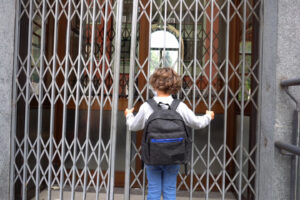Fathers have unique, positive impact on a child’s education, study shows
A father’s engagement in a child’s early years has significant positive effects on education, even years later, a new study has found.
Researchers from Leeds University Business School and…

A father’s engagement in a child’s early years has significant positive effects on education, even years later, a new study has found.
Researchers from Leeds University Business School and the University of Manchester in the U.K. carried out the study, which looked defined a father’s “involvement” in such activities as reading a book, doing musical activities together, or drawing or playing together.
“Fathers’ pre-school involvement (when the child is aged three) helped to increase a child’s educational attainment at the start of school, when they are aged five,” researchers concluded. “This suggests that early paternal involvement sets up a pattern of involved caregiving that is likely to continue, as the child gets older, all of which has benefits for a child’s educational progression.”
A father reading to their child had a noticeable correlation on their “Early Years Foundation Stage” (EYFS) achievement – which includes language, mathematics, literacy and physical development.

Nearly 60% of children whose fathers read to them several times a week or more scored well in EYFS. Only 38% of those whose fathers weren’t engaged scored well.
Paternal engagement also increased the likelihood of the child receiving good grades in school.
While these benefits could be explained by other factors, such as being part of a two-parent household, researchers found that fathers did have a unique effect compared to mothers.
“Fathers and mothers talk differently to their children and have different conversation topics,” the report says. “Fathers are more likely to engage in great physical engagement and activity… which fosters risk-taking and problem-solving.”
In comparison, maternal involvement produced more “pro-social behavior,” such as the ability to share.
The results are similar to other studies showing the tremendous difference fathers make in a child’s upbringing.
Households without a father are four times more likely to be impoverished, for example, and children without fathers are more likely to have behavioral disorders and are at increased risk of suicide.
And a present father decreases the likelihood of teenage pregnancy, drug or alcohol abuse, and criminal behavior.



